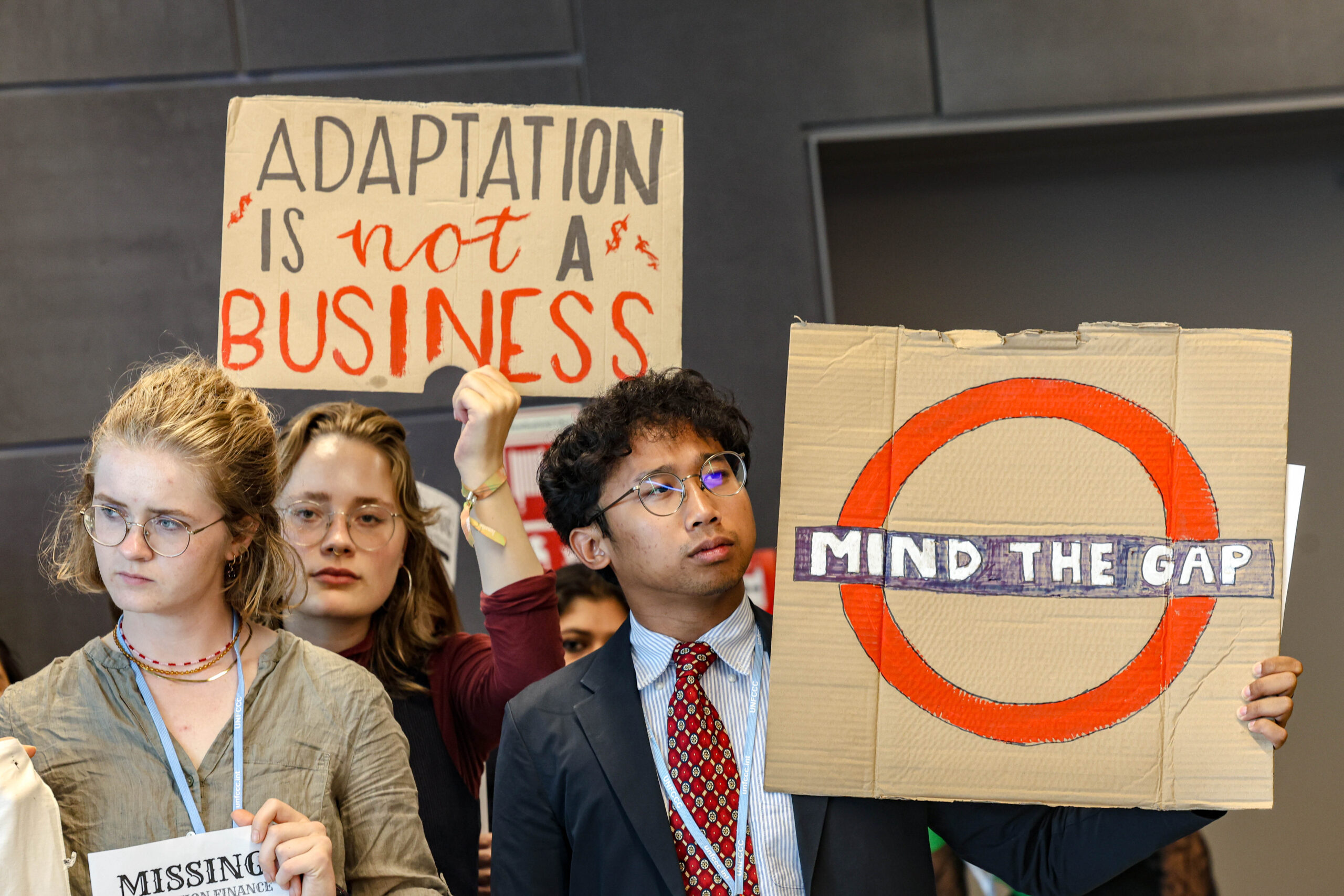Developing Countries Demand Boost in Climate Adaptation Finance
At the ongoing UN climate talks in Bonn, developing nations have intensified their call for increased adaptation finance. Evan Njewa, chair of the Least Developed Countries (LDC) group, announced on Tuesday that his bloc supports a new global target: tripling adaptation finance by 2030 based on 2022 levels. This follows the COP26 commitment to double adaptation finance to approximately $40 billion annually by 2025—a goal that concludes this year but won’t be officially assessed until 2027.
“Adaptation is a lifeline,” Njewa emphasized in a press briefing. He pointed out that despite progress, the current funding levels remain far below what is needed. The UN estimates that adaptation needs will reach between $160 billion and $340 billion annually by 2030. Tripling the 2022 levels would yield just under $100 billion, still leaving a substantial gap.
Other developing country coalitions, such as Grupo Sur and the Like-Minded Developing Countries, have echoed this demand in various negotiation forums. Thibyan Ibrahim, finance negotiator for the Alliance of Small Island States (AOSIS), confirmed their support but added, “Even tripling does little to close the adaptation finance gap.”
Uncertainty Over Where New Goals Fit in Negotiations
Efforts to establish a new adaptation finance goal face procedural hurdles. The previous doubling target was enshrined in the COP26 cover decision. However, the presidency of COP30 has signaled it does not plan to issue a cover decision, raising questions about where the new target could be formalized.
Potential avenues include the Baku to Belem roadmap aiming for $1.3 trillion in climate finance or the Global Goal on Adaptation. Yet neither is a secure path. The roadmap is not an official UN agreement, and developed countries have shown resistance to including financial metrics in the Global Goal on Adaptation discussions.
Meanwhile, a recent report by CARE warns that adaptation finance could fall by 10% in 2026. Countries like France, Germany, the Netherlands, and especially the UK are projected to make significant cuts, while the United States is expected to contribute nothing in both 2025 and 2026. “Someone somewhere has to rise up and fill the gap,” said Njewa, addressing the U.S. funding shortfall.
Visa Issues Spark Protest Against Germany as Host
Climate equity campaigners are also questioning whether Germany should continue to host the mid-year climate talks due to persistent visa barriers for delegates from developing nations. Over 200 groups issued a joint statement urging the UN to consider relocating these talks to more accessible countries.
Outside the Bonn conference center, a small protest took place featuring a voice message from Roaa Alobeid, a Sudanese activist blocked from attending despite submitting extensive documentation for a Schengen visa. “I’m not there. I will never be there. Why? I’m not worth it?” she asked emotionally.
Zoneziwoh Mbondgulo-Wondieh from Cameroon, who did attend, shared that her infant daughter was denied a visa for being “too young.” She questioned what message such decisions send to working mothers worldwide.
Rachitaa Gupta of the Global Campaign to Demand Climate Justice suggested the talks be moved to cities like Nairobi or Bangkok, where UN facilities exist and visa access is easier. “Holding meetings in the Global South would also be more cost-effective,” she added.
Climate Finance Rising—But Not Equally Distributed
New data from the Climate Policy Initiative (CPI) reveals that global climate finance reached a record $1.9 trillion in 2023, more than tripling over six years. Private investment crossed the $1 trillion mark for the first time, largely due to household purchases of electric vehicles, solar panels, and energy-efficient homes in advanced economies and China.
While these figures suggest progress in redirecting funds toward green investments, the CPI warned that public climate finance actually declined by 8% from 2022 to 2023. Cuts in official development assistance, particularly in the UK and US, compound concerns that the flow of finance to the Global South could dwindle further.
In 2023, international climate finance for emerging and developing countries reached $196 billion, 78% of which came from public sources. However, least-developed countries continue to struggle with limited access to affordable capital. The CPI called for more financial innovation and targeted support to address these barriers.
A separate report by Oil Change International and 17 other NGOs criticized blended finance—government funds used to attract private investment—as underperforming. The report found that each public dollar of concessional lending is drawing in far less private capital than expected, with most of the funds going to high-income nations and China. “Private investors are not fit to lead the way to a fossil-free future,” said Bronwen Tucker, public finance lead at Oil Change.
African Nations Demand Mineral Justice
At the Bonn talks, activists also raised concerns about the Lobito Corridor, a rail project aimed at exporting critical minerals like cobalt and copper from Angola, Zambia, and the Democratic Republic of Congo. While funded by the US and EU, researchers from the International Institute for Environment and Development (IIED) warned that the project risks prioritizing raw material exports over local development.
“This should not become another means to enrich wealthier countries at the expense of African economies,” said IIED researcher Lorenzo Cotula. He urged global partners to support economic development and uphold human rights in the region.
Organizations like Power Shift Africa and the Natural Resource Governance Institute echoed these concerns, calling for the integration of sustainable supply chains and the right to development into climate and trade agreements. “We are repeating the mistakes of the fossil fuel era,” said Anabella Rosemberg of CAN International. Samira Ally of Power Shift Africa added, “Africa’s mineral wealth can accelerate net-zero goals if governed equitably.”
This article is inspired by content from Climate Change News. It has been rephrased for originality. Images are credited to the original source.

